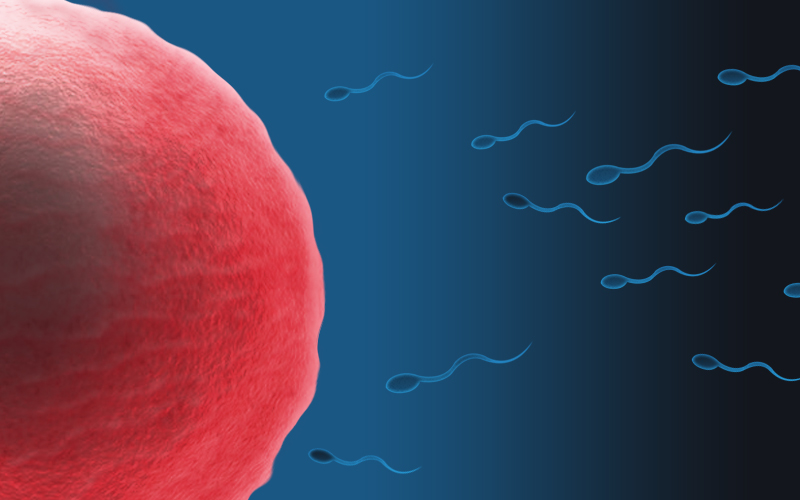The last thing on most teens’ minds is whether or not they want to have kids someday. But transitioning transgender adolescents are forced to consider whether to preserve their sperm or eggs at a young age.
Whether or not they pursue fertility preservation is influenced by certain key factors, such as their family values, gender dysphoria, the cost of the procedure or not feeling ready to make such an important, lifelong decision at their age, reports a new study from Northwestern Medicine and the Ann & Robert H. Lurie Children’s Hospital of Chicago.
Highlights need for better training for primary care doctors when counseling transgender patients as they consider medical/surgical gender transition
“As a child psychologist, I’m usually talking to adolescent patients about contraception to prevent unwanted pregnancies, not, ‘Down the line, do you want to be a parent? And if so, how important to you is a genetic connection to your child?’,” said first author Diane Chen, assistant professor of psychiatry and behavioral sciences and pediatrics at Northwestern University Feinberg School of Medicine anda pediatric psychologist at Lurie Children’s. “It can be difficult for kids who are transitioning in adolescence to have to be thinking about these things. It’s not developmentally typical.”
The study was published April 15 in the journal LGBT Health. It is the first study to use in-depth interviews rather than retrospective chart reviews to explore factors that impact fertility preservation decisions in transgender adolescents and young adults.
Fertility preservation only recently became an elective option for transgender youth. It can be difficult and ethically complex to approach the topic with adolescents, which is why Chen was drawn to the research.
“Potentially compromised fertility should not be a reason to prevent transgender adolescents from transitioning with hormones, but we should be taking steps to train doctors on how to talk to transgender youth about options for fertility presentation and support them in making these decisions,” Chen said.
This can be particularly complicated because it is not until a person is in their mid-20s that their frontal lobe is fully developed, which has led some to question whether adolescents and young adults can fully understand the potential implications of their decisions.
Additionally, doctors should consider referring some patients to see a specialized fertility counselor for support, Chen said. But even specialists might need to revamp their protocols to include more information, which, as one study participant said, can be lacking.
“I do kind of regret not doing the fertility [preservation] thing,” said one 18-year-old study participant who had received fertility preservation counseling but did not pursue fertility preservation. “I felt like if I didn’t do my own research, and I didn’t know, hey, I can be on testosterone then get off, and then I can just like start taking ovulation medication … like imagine if I didn’t do my own research! I just wish they had told me, ‘hey, there is a way, even after you start testosterone to do [fertility preservation].’”
The study identified the following four key factors that influence transitioning transgender youth when deciding whether to pursue fertility preservation:
- Either knowing they wanted biological children or weren’t sure
- Family values such as a parent encouraging or pressuring them to consider fertility preservation
- The cost of the procedure and storage of their eggs or sperm
- Concern for worsening gender dysphoria by completing invasive fertility preservation or delaying testosterone or estrogen initiation
“In this population in particular, there are unique barriers to fertility preservation related to gender dysphoria,” Chen said. “If someone feels their reproductive organs don’t align with their gender identity, it could be distressing to pursue fertility preservation.”
A trans male who was assigned female at birth and wants to preserve his eggs, for instance, will need to go through a cycle of hormonal stimulation and egg retrieval similar to a woman pursuing in vitro fertilization due to infertility, which Chen said can be quite invasive.
Determining fertility options at a young age is not a new concept. For years, female pediatric cancer patients at Northwestern’s Oncofertility Consortium have received consultation about whether and how to preserve their eggs before undergoing their cancer treatment.
The transitioning transgender study involved 18 patients between the ages of 15 and 24 years old. Below is a table with a breakdown of their responses:
 The study was funded by the 2016-2017 Research Excellence Award by the Chairman through the Department of Psychiatry and Behavioral Sciences at Northwestern University Feinberg School of Medicine and the 2017 Targeted Research Grant by the Society of Pediatric Psychology. This study served as pilot data for a recently funded National Institutes of Health study (grant R21 HD097459) “Fertility Decision-Making in Youth and Young Adults.”
The study was funded by the 2016-2017 Research Excellence Award by the Chairman through the Department of Psychiatry and Behavioral Sciences at Northwestern University Feinberg School of Medicine and the 2017 Targeted Research Grant by the Society of Pediatric Psychology. This study served as pilot data for a recently funded National Institutes of Health study (grant R21 HD097459) “Fertility Decision-Making in Youth and Young Adults.”


